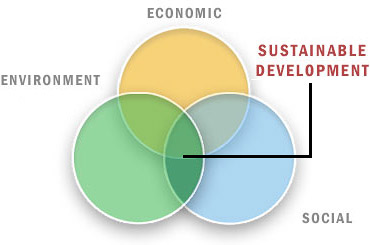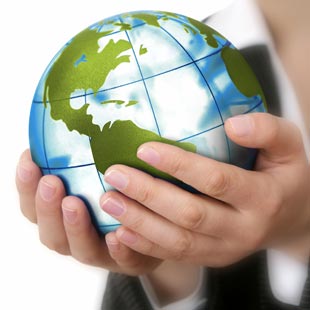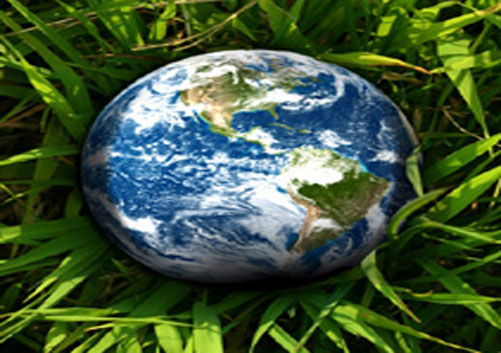![]() | About Us | 4x4 Vehicles |
Accessories | Executives | Testimonials | Contact | FAQ |
Buy
| About Us | 4x4 Vehicles |
Accessories | Executives | Testimonials | Contact | FAQ |
Buy
Soni Motors Thailand :: [email protected]
Phone/WhatsApp/Viber/LINE: Jim: +66-89-106-5701 :: Sam: +66-86-677-5701
Thailand, Dubai, Australia and UK's Top Exporter of new used Diesel 4x4 pickup, cars, SUV. Facebook Fan Page
Soni world's most Green Auto Dealership - Growing Responsibly
 An Environmentally Conscious
Car Dealership seems a contradiction in term
but not for us. Sustainability has been a part of our business model since our
founding in 1911 even though our Founding Fathers did not use the term
Sustainability to describe what they did to improve their environment,
community, society and organization. Soni became formally committed to
Sustainability in 1992 and has since then worked hard to increase awareness of
the role each person and company - no matter what business they are involved in
- to create a more sustainable way of doing business.
An Environmentally Conscious
Car Dealership seems a contradiction in term
but not for us. Sustainability has been a part of our business model since our
founding in 1911 even though our Founding Fathers did not use the term
Sustainability to describe what they did to improve their environment,
community, society and organization. Soni became formally committed to
Sustainability in 1992 and has since then worked hard to increase awareness of
the role each person and company - no matter what business they are involved in
- to create a more sustainable way of doing business.
It is essential that each individual reduce his energy and carbon footprint and Soni is very conscious of this importance and we have done a number of things to incorporate sustainability into our business model. We are committed to environmental, social and economic health, or the "triple bottom line". Sustainability has both individual and institutional applicability, and is usually a balancing act. This is how we have applied our efforts:
- Environmental sustainability means preserving and enhancing the ecosystem locally and globally by measuring and improving our business impacts on the environment. We work hard to reduce our personal and collective environmental or ecological footprint (energy consumption, recycling, waste retrieval, etc.).
- Social sustainability is achieved by improving the community in which we work and sell our product. We are fully engaged in our communities and support all development efforts to improve the health and welfare of our communities and regions, providing opportunities for local jobs and business creation, personal growth, education, health and lifelong learning. The well being of our communities is as important to us than our fiscal bottomline
- Economic sustainability or Organizational sustainability means that a development is profitable due to sound business practices, with measurable cost benefits due to strategic sustainability policies such as conservation of water and energy. Environmental and social sustainability is not at the cost of organizational sustainability and we have continued to grow despite our strong commitment to sustainability. We achieve organizational sustainability by working for the right work-life balance for employees and shareholders
Soni's Commitment to Sustainability
Sustainability isn't all about photovoltaic panels and spending money on new technology, it's also about encouraging best practice - for example, turning lights off or switching off the photocopier when not in use.
Soni's role as a sustainable organization include:
- Reducing our consumption of natural resources including gas and water
- Reducing the amount of waste being removed for land filling by recycling
- BBuilding new buildings to comply with new building regulations
- Compliance with all legislation that has an impact on our sustainability
- Promoting more environmentally-friendly forms of transport, such as walking, cycling, car sharing and use of public transport. Staff residence was created within Soni campus and staff has the choice of living rent-free and board-free within Soni campus. For those who choose to stay far we encourage and organize car pooling
- Encouraging staff to become more environmentally conscious and to use sustainable processes where possible
How do we define sustainability?
 Sustainability is about living in a way that meets the needs and goals of people today, without affecting the ability of future generations to meet their own needs.
The idea is to build mutually beneficial relationships with customers,
employees, investors and the community for many years -- not just this quarter. Sustainability is often defined as a balance of the three E's: the environment, the economy, and social equity.
Sustainability is about living in a way that meets the needs and goals of people today, without affecting the ability of future generations to meet their own needs.
The idea is to build mutually beneficial relationships with customers,
employees, investors and the community for many years -- not just this quarter. Sustainability is often defined as a balance of the three E's: the environment, the economy, and social equity.
When we use the term sustainability we use it comprehensively, our definition includes environmental sustainability (protecting or improving the earth’s climate, agriculture or forestry) to economic sustainability (operating a business in a manner that allows one to stay in business over time) to social sustainability (investing in people and services that create a basic framework for society.)
Soni defines sustainability as “decreasing your negative impact on your immediate and extended surroundings, whether that is the earth, your family or community.”
What does it mean to us?
 We only have one world to share and to pass onto our children so
sustainability is not only important but crucial to our continuing survival. Everyone wants their business, their community, and their world to improve, and nowadays there are many ways to contribute to all three without taking a hit to your pocketbook or radically altering your lifestyle. The bottom line is that by living and working sustainably you can save money, provide tax write-offs, improve your brand reputation, and attract better clients and employees.
We only have one world to share and to pass onto our children so
sustainability is not only important but crucial to our continuing survival. Everyone wants their business, their community, and their world to improve, and nowadays there are many ways to contribute to all three without taking a hit to your pocketbook or radically altering your lifestyle. The bottom line is that by living and working sustainably you can save money, provide tax write-offs, improve your brand reputation, and attract better clients and employees.
Sustainable development is achievable, without sacrificing the quality of our lives. However, sustainable development can only be achieved if we learn to think more sustainably and adopt more sustainable behaviour
We can choose to feel guilty about the business we are in or do all we can to reduce ours and our company's carbon footprint.
Here are some of the things we have tried, as well as some ideas and tips from others in the industry but first our environmental statement of principles.
Soni Motors Environmental Statement of Principles
"We are the stewards of our planet and as such, have the responsibility to tread lightly on the Earth and prevent the abuse of natural resources. The Soni Group recognizes that it exists as part of interconnected communities that are affected by personal and institutional choices. We are dedicated, therefore, to investigating and promoting awareness of the current and future impact of our actions in order to foster responsibility for these human and natural communities. Soni strives to be a model of environmental stewardship by incorporating ideals of sustainability into the operations of the dealership and the daily life of our executives, staff members and partners."
Environmental Sustainability: It’s Easy Being Green
Our company, employees, and clients are very open to ideas for reducing their environmental impact. Some of our first initiatives included:
- We Recycle what we use: We recylce paper, aluminum, plastic, and glass. We recycle electronic and office products, return printer and ink cartridges to the manufacturer, and donate used equipment to the organizations serving the poor in our neighborhood
- Reduce what we use: We have tried to make our office as paperless as possible. Absolutely no memos are circulated among us, there is not even a mail room, all correspondence between our staff members is electronic. We don't even print emails for record keeping, we only keep records that are mandated by law in paper format the rest are saved in electronic format. We pint on both sides of the paper. We turn off equipment when not in use. This means turning off not just the equipment or appliance itself, but the surge protectors as well to avoid phantom power usage. At night we turn off all equipment to conserve. All our lighting is energy saving and our appliances CFC-free and energy-efficient. We even turn off AC when we step out of the office even though in oppressive Bangkok heat it takes a while for the room to cool
- Use green products: Recycled paper here is four times as expensive but we make every effort to use primarily recycled paper and soy-based inks for all our printed materials. We also try to ensure that the content we write has a long lifecycle, so that we aren’t constantly updating and reprinting materials. In terms of physical products we use in the office, we use melanin crockery and steel cutlery that is washed after its use. We use green or biodegradable cleaning supplies when available even though they are five times as expensive than regular ones
- Provide Free Room & Board and Encourage alternative forms of commuting: We have created staff residence in our campus to avoid commute altogether and our staff can live there rent free with their families. Our kitchens provide free meals cooked under a professional chef's direction to all staff members. To those who choose to live far from the Soni Campus, we encourage employees to save as much energy and money as possible when getting to and from work. We offer employees living in close vicinity free mountain bikes to make the daily commute. We encourage others to carpool in company provided vehicles. We pay for the fuel if the vehicle is shared by four or more staffers.
Environmental Sustainability: Beyond Reduce, Reuse and Recycle
Reusing, recycling, and reducing can help save the earth, but a number of new services cater to companies that want to do even more for the environment. Luckily, they don’t all come with a high price tag. Some ideas include:
- Switch to green energy: There are number of alternative energy providers on the market today whose fees are not very different from those of your local fossil-fuel power plant.
- Build green: Our new headquarters was built green from
scratch. The benefits of building green from scratch besides saving the
environment have been
- Lower operating costs
- Reduce waste sent to landfills.
- Conserve energy and water
- Healthier and safer for our staff
- Reduced harmful greenhouse gas emissions
- Demonstrate our commitment to environmental stewardship and social responsibility
- Market responsibly: We engage in Green marketing which means that we do the bulk of our marketing online and when we have no recourse but to print we do it on recycled paper and with soy based inks whenever possible
- Offset our carbon output: We also offset our carbon output by planting trees all over our cities of operation and in our headquarters and in our residences. There are plants everywhere in our headquarters and in our export lots
Social Sustainability: Won’t You Be My Neighbor?
 We have been contributing 5% of our profits to our communities, cities and
countries since our founding in 1911. Since 1991, we began contributing to
environmental causes as well. Last year Soni
celebrated award of Nobel Prize to Al Gore and during the party Mr. Jim Quraishi
announced that 2% of our profits will be earmarked for environmental causes and
projects. Here are some of the initiatives that we have undertaken:
We have been contributing 5% of our profits to our communities, cities and
countries since our founding in 1911. Since 1991, we began contributing to
environmental causes as well. Last year Soni
celebrated award of Nobel Prize to Al Gore and during the party Mr. Jim Quraishi
announced that 2% of our profits will be earmarked for environmental causes and
projects. Here are some of the initiatives that we have undertaken:
- Donate our money and/or time: We donate 2% of our profits to environmental causes and projects in various Asian countries of our operation. We pool our contribution with other like-minded companies to improve the impact of our donation
- Start your own initiative: Our used computers go to poor students in our neighborhood. The response from the community, employees, and clients has been overwhelming. Everyone’s been eager to see their old computer go to a good cause
- Support our employee’s interests: We have found that encouraging our employees to get involved in their own philanthropic initiatives—whether by donating company money or services, or giving them flexible working hours to support their volunteering efforts—has had broad-reaching effects. It’s not easy to get an entire company behind an initiative, but encouraging our employees to recommend and drive philanthropic ventures has resulted in happier employees and a more positive relationship with our community
- Do pro bono work: We also encourage our employees and executives to give some time to a local non-profit or educational institution or work with community to improve the neighborhood. Since many of our employees choose to stay within Soni Campus it is great for them to give some of their time to help the community and develop friendships
- Mentor or offer internships: Work with a local school to offer internships or part-time positions to poor students
Organizational Sustainability: Our Other Family
Achieving the right work-life balance leaves both employees and company owners happy. At Soni, we place a lot of importance on work-life balance—lifestyle is the powerful but quiet drive behind what we do, and we believe in a clear separation of work and free time. We have encouraged this with our staff in a number of ways:
- Conduct traditional meetings in non-traditional settings: Our Monday morning meetings, where we discuss upcoming tasks and projects, take place near our staff mess in open air in a very informal setting. Since we provide free catered meals three times a day we like our chef to vary food choices to match a theme we select. This can be a lot of fun
- Schedule time for company outings: Three times a year we take entire Soni staff for an outing outside Bangkok. This helps bring us closer. Four times a year we celebrate different religious holidays with 100 poor Buddhist, Hindu, Sikh, Christian and Muslim families and take them to a favorite picnic spots and organize games, crafts, barbecues and gifts. Please see our press releases of our joint Christmas-Eid celebration and joint Easter-Holi-Prophet's Birthday. We also celebrate Chinese New Year. All of these events are attended and hosted by our staff and engaging in these philanthropic activities brings us closer together and is very rewarding. Participation in these events is voluntary
- Recognize external commitments: Be they family, volunteer, or education-related, supporting your staff’s personal priorities and commitments—and possibly some financial support in the form of tuition reimbursement, childcare subsidies, or sponsorship of local non-profit organizations—leads to a more committed and happier workforce, not to mention stronger overall productivity.
- Support independent projects and personal development through tuition reimbursement or additional career training, or time-off for school or volunteer efforts.
- Support family life through on-site daycare, reimbursements for family benefits, or recognition of school holidays or events. This type of support means a lot to employees with family commitments.
- Improve diversity: We encourage gender, race, culture, religion and age diversity at Soni
- Increase dialogue: We listen to our employees, customers and partners. Both positive and negative feedback is encouraged
Ethics: Bedrock of our Triple Bottom-lines
 Our
triple bottom-lines of community well-being, environment well-being
and fiscal well-being are guided by a strong sense of ethics. Our
great grandfather was very conscious of the prevailing business
climate at that time in Asia and consciously chose honesty and
integrity as foundations of his business and these remain essential
guiding lights for us now. Unscrupulous honesty has served our
triple bottom-lines as well. We may suffer a loss in the short-term
but in the long-term we prosper because our customers choose to stay
with us because they know that we will never cheat them, the vehicle
we promise is the vehicle they will receive. We never short change
our customers for a quick buck.
Our
triple bottom-lines of community well-being, environment well-being
and fiscal well-being are guided by a strong sense of ethics. Our
great grandfather was very conscious of the prevailing business
climate at that time in Asia and consciously chose honesty and
integrity as foundations of his business and these remain essential
guiding lights for us now. Unscrupulous honesty has served our
triple bottom-lines as well. We may suffer a loss in the short-term
but in the long-term we prosper because our customers choose to stay
with us because they know that we will never cheat them, the vehicle
we promise is the vehicle they will receive. We never short change
our customers for a quick buck.
The Soni Group of Companies or its subsidiary companies shall not be liable for any loss or damage caused by the usage of any information obtained from this web site. Companies referred to in this web site shall not be construed as agents nor as companies recommended by Soni Motors Thailand or the Soni Group or any of its subsidiaries.
© 2001-2018 :: Soni Motors Thailand - a division of
the Soni Group ::
All rights reserved ::
![]() [email protected]
[email protected]
![]() | About |
4x4
| Commercial Trucks | Accessories |
Executives |
Testimonials | Contact |
| About |
4x4
| Commercial Trucks | Accessories |
Executives |
Testimonials | Contact |
![]()
Toyota Hilux Revo | Toyota Hilux Vigo | Mitsubishi L200 Triton | Nissan Navara | Toyota Fortuner | Mitsubishi Pajero Sport Isuzu DMax | Isuzu MU-7 | Chevy Colorado | Ford Ranger | Mazda BT-50 | Mitsubishi Fuso | Nissan UD Trucks | Hino Commercial Trucks | Isuzu Commercial Trucks